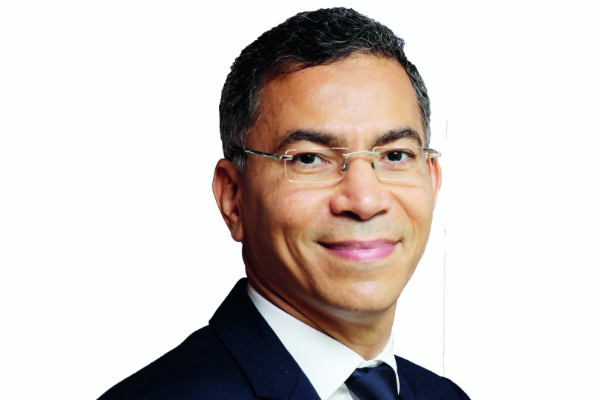No loose change: The technologies redefining financial services
Alaa Elshimy on the evolving role of blockchain, big data and AI in finance

Recent research has shown parts of the GCC to be way ahead of global competitors when it comes to the adoption of innovation in financial services. The UAE is a financial hub for the Middle East, and has shown to be living up to its name, with many technological services and tools being deployed.
The industry has felt the weight of the digital revolution, with the effort of maintaining growth and profitability becoming more strenuous by the day. Banks and financial institutions need to remain relevant, customer-centric, and innovative. That’s no mean feat.
Historically, financial services has always been one of the slower moving industries – challenging to break in to, and risky to disrupt. Today, however, things are changing. Thanks to the rise of fintech companies in the GCC, and government support of such start-ups, new players are driving change in the financial services industry, altering the way we deal with our finances. This will have a major influence on the way you deal with financial service providers in the future, from mobile payments to insurance options.
Experts have been highlighting future trends that warrant due diligence, citing digital transformation, AI and blockchain, real-time analysis and big data as the most crucial enablers of change.
It’s highly likely we will be feeling the effects of these innovations sooner rather than later in our part of the world. Similar to the rise of big data in commercial operations, blockchain will see its fame grow significantly, with financial services likely being one of its biggest drivers. The distributed ledger technology has secured its place in industrialisation, and many companies have begun building out strategies that incorporate blockchain solutions. We look forward to seeing where this technology ends up, particularly in the institutional space, and beyond retail.
One of the areas where this technology will be crucial is fraud and anti-fraud regulation. Due to the algorithmic fabric of trust it will build, seamless and real-time decision-making in the transactional security space will be able to dramatically improve its delivery speed, as well as its reliability.
But it’s not just about one single technology. In order for blockchain to be successful, or valuable rather, it needs to collaborate with other technologies. Big data plays an important role here – processing large volumes of data and information from multiple sources, moving through blockchain, to enable seamless transactions.
We’ve been working in the big data space to improve operational performance from the backend, but also the customer experience, which big data significantly contributes to. Today, our focus lies in real-time anti-fraud processing.
This is important for both companies and their customers. Research shows that customers expect financial latency to be less than a single second – but the process is a complex one. When an online transaction is made, the e-transaction that’s triggered first goes to the real-time anti-fraud system to be validated. That system judges the authenticity of the request and then either highlights, doubts or enables the move. If there’s an issue, the case will be closed off, and relevant authorities alerted. If it’s cleared, it’s then sent to its related core system where the payment is successfully made.
In total, that process needs to be less than one second – which seems barely possible from our perspective, but thanks to big data it’s achievable. How we’ve made this work is by enabling a large number of concurrent transactions to ensure all data can be analysed in less than 300 milliseconds.
Add to this the emergence of artificial intelligence, which allows common trends and concerns to be remembered and prevented by machine learning, and your transactions become more seamless, more reliable, and more efficient.
The remaining key drivers are of course biometrics, which we hear being talked about more often. This seeks to further improve security and build trust, which in turn will further help propel the adoption and acceptance of blockchain.
Together, these technologies will accelerate the digital transformation for the willing and ready, and those that fail to move quickly will find themselves lagging behind in an industry that shows no sign of slowing down. From a customer perspective these digital drivers are encouraging, from a business perspective it’s just another challenge that needs addressing.
For businesses in the GCC, where adoption of digital services is high, a solid partner ecosystem, facilitated by global players, will continue to foster the right environment for roll-out, as well as the right skills and talent to take full advantage of what these services have to offer.
Alaa Elshimy is managing director and vice president, Huawei Enterprise Business, Middle East
